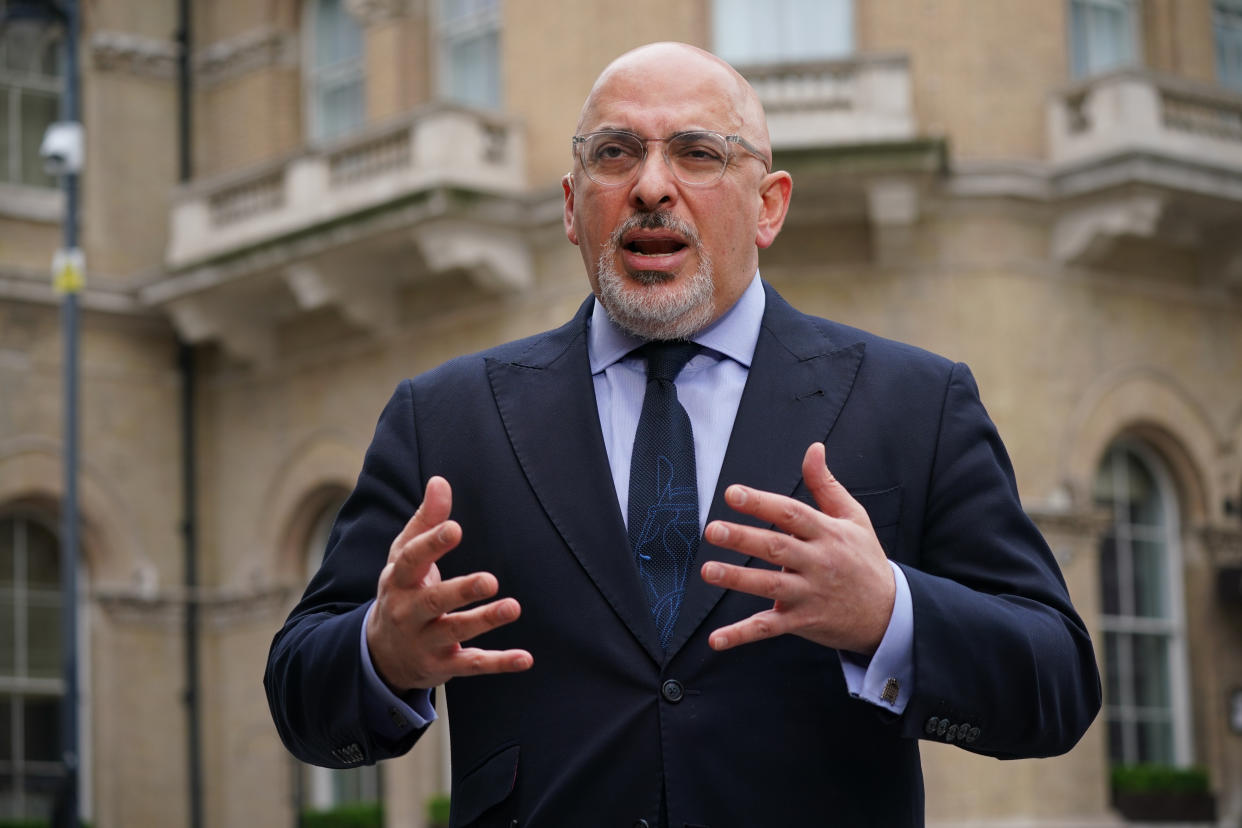Government denies vaccine dose interval will be cut to four weeks amid falling jab rates
Watch: Vaccines minister says he's confident about ending restrictions on July 19
The government has rejected reports that the interval between COVID vaccine doses will be cut to four weeks amid falling jab numbers.
Vaccines minister Nadhim Zahawi told Sky News that the Joint Committee on Vaccines and Immunisation’s (JCVI) data showed the optimum protection was offered by an eight-week interval between the first and second jab.
It comes after The Sunday Times reported that vaccine doses are set to be halved to four weeks to accelerate the administration of second jabs.
If the JCVI approved the reduction in the interval between jabs, it would open up the possibility of quarantine-free international travel for more Britons during the school summer holidays, according to the newspaper.
The government confirmed this week that double-vaxxed Britons will be able to travel to amber countries without having to isolate on return from 19 July.

But asked by Trevor Phillips on Sky News whether the interval would be reduced, Zahawi said: “No. I’m slightly puzzled where that story has come from because obviously, I engage almost on a daily basis with my colleagues at the JCVI.
“The real-world data suggests that the eight-week interval offers that additional fortification with the two doses much better than having that interval shortened even further.”
Read: COVID pandemic will 'worsen' and it's 'dangerous' to return to normal, warn experts
Zahawi added that those who get their vaccine now will wait eight weeks after the prime minister reduced the interval from 12 weeks.
He said those most severely affected by coronavirus now were those who had not had the vaccination.
The vaccine minister also revealed on Sunday that the government will issue guidance stating that people will still be "expected to wear masks in indoor, enclosed places" after the final step of releasing lockdown restrictions.
He said: "I think it is important that we remain cautious and careful and the guidelines that we will set out tomorrow will demonstrate that - including guidelines that people are expected to wear masks in indoor, enclosed spaces,"
Zahawi also said he was "confident" that the country would move to the next stage of lifting coronavirus restrictions next week.
But he said: "We're seeing a rise in infection rates in this country, but also in Europe and elsewhere. The difference for us is that the vaccination programme has been so successful."
When asked if vaccine rates were slowing down, Zahawi said these were "the hard yards".
He said: "What we need to make sure is as the virus gets desperate and attempts to infect people, to mutate and be able to survive, we should continue to fortify the nation with a vaccination programme because that is the way we transition it from pandemic to endemic status."
As of this week, 87% of adults have now received a first dose and 66% a second.
But figures show that the rate at which younger age groups are getting vaccinated, particularly men, is slowing.
On average 97,000 first vaccine doses were given over the past seven days, down from a peak of 500,000 a day in March, according to the Times.
Meanwhile, about 160,000 second doses were administered each day, down from 350,000 a month ago.
Watch: Double-jabbed Britons will be allowed to travel to 140 amber list countries


